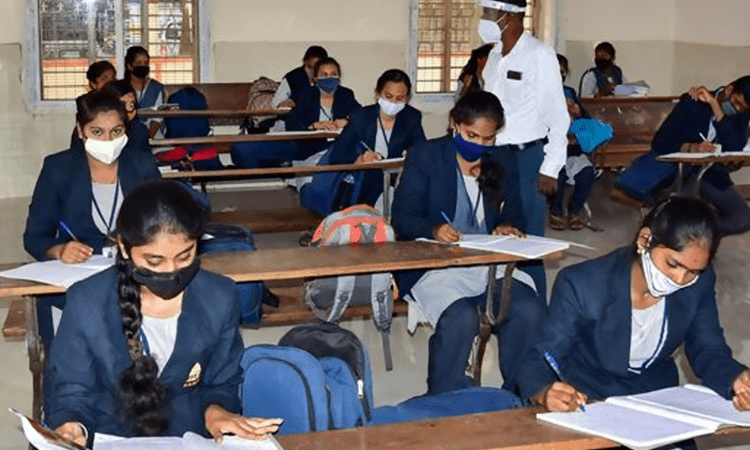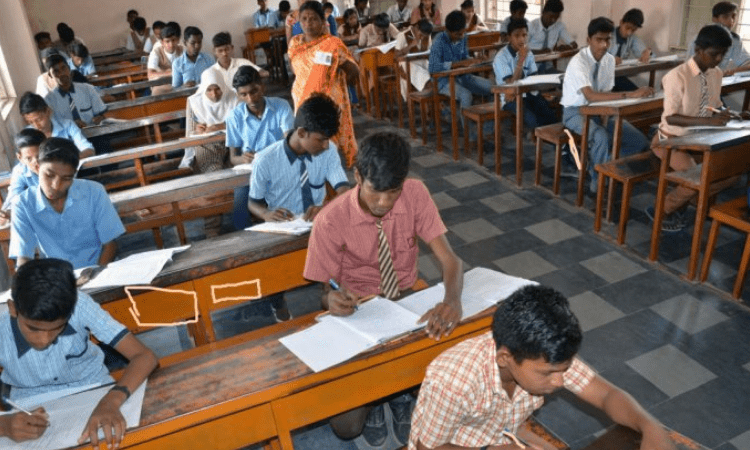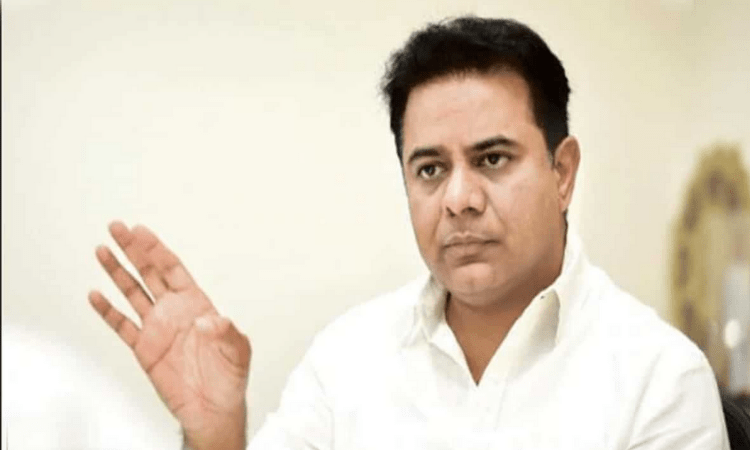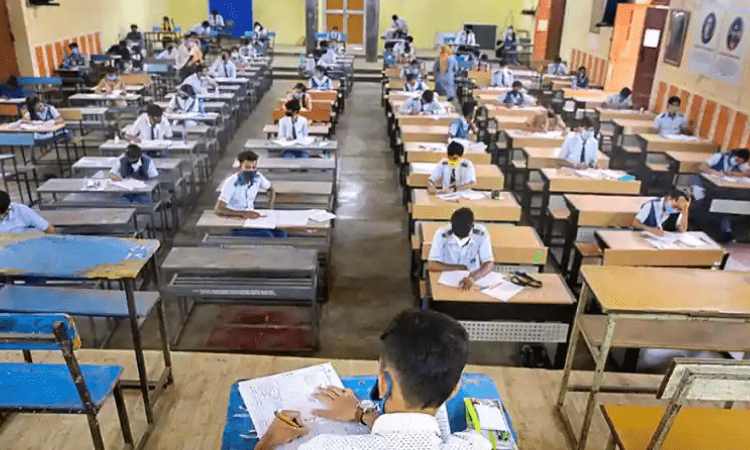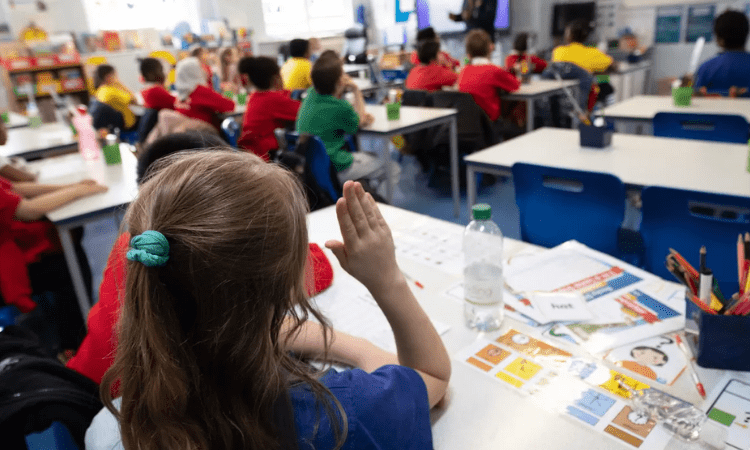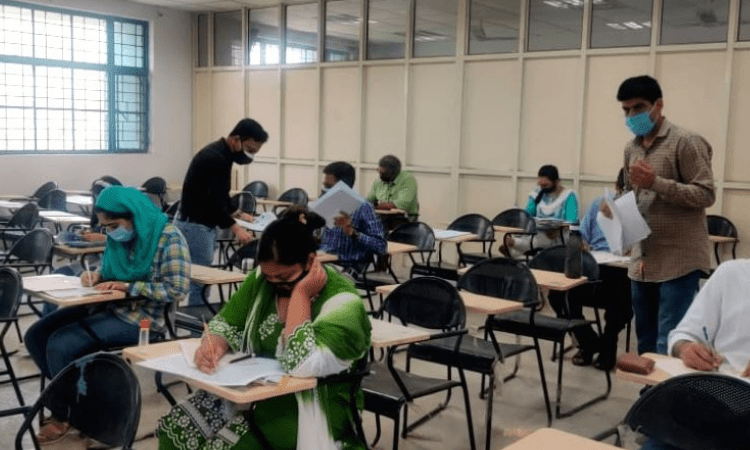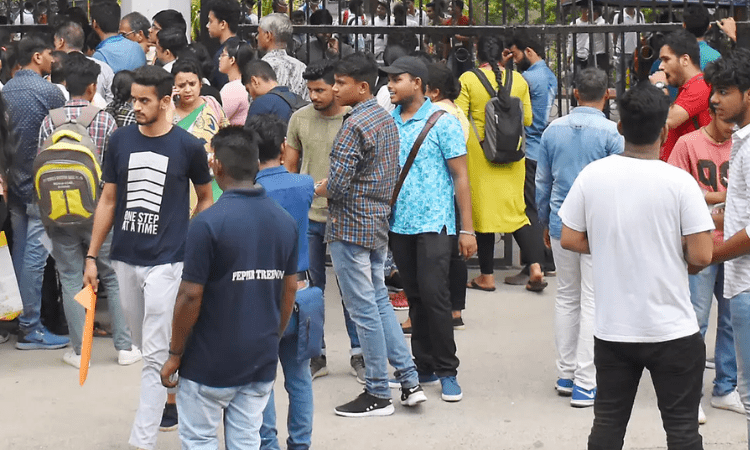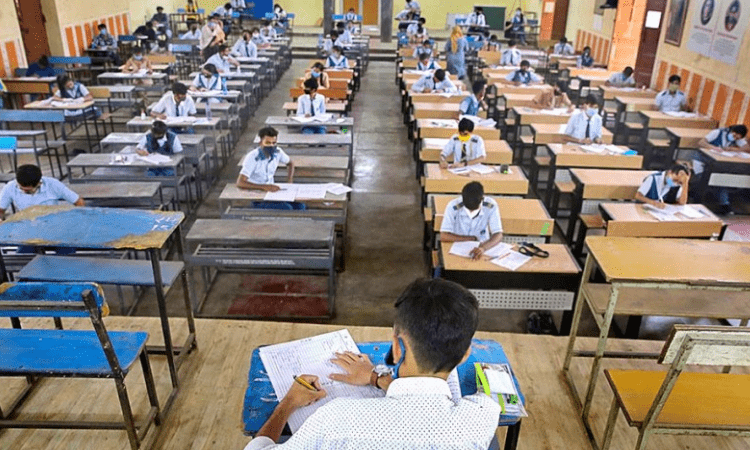Amidst Covid fears, the two-day Secondary School Leaving Certificate (SSLC) or Class 10 examinations began across the state on Monday.
This is for the second consecutive year that the Karnataka State Secondary Education Examination Board (KSEEB) is conducting the SSLC examinations amid the pandemic.
As many as 8.76 lakh candidates have registered for the SSLC examination. The examination has been cut short this year due to the second wave of the pandemic.
Students will have to attempt a multiple choice question (MCQ) paper and have to shade the right option on the OMR (Optical Mark recognition or Optical Mark Reading) sheets.
The OMR sheets are of different colours so that there is no confusion among students while appearing for class 10 examinations. The evaluation process is expected to be faster this year as there is no conventional method involved in finalizing the marks of the students.
On Monday (July 19), the examination for core subjects – science, social science and mathematics are being conducted. On Wednesday (July 22), students will have to write three of their language papers. Each of the subjects will be of 40 marks each.
Owing to Covid concerns, the KSEEB this year has increased the number of examination centres and teachers on duty, with as many as 1.19 lakh staff have been deployed for 73,064 exam halls in 4,885 centres across the state.
Special arrangements have been made for 33 students who have tested positive for Covid, to write the exams at the Covid Care Centres (CCC) in their respective districts.
Apart from having a health screening centre at all examination centres, heads of the centres ensured that physical distance was maintained and only 12 students were seated in a classroom and one student was seated on a bench, as a result of this, there is a substantial rise in the number of examination centres and staff deployed on examination duty this year.
As per the Covid safety protocols, the education department has ensured that all the staff involved in examination duty have received at least one dose of vaccination.
Considering the ongoing Covid situation, the state government has also arranged transportation for children to reach the examination centres.
Wishing all the students appearing for SSLC exams good luck, Chief Minister B.S. Yediyurappa in a tweet said, “I urge my young friends to relax and focus on exams. I assure parents that our government has made all arrangements to ensure exams are held safely.”
Karnataka Education Minister S. Suresh Kumar too in a tweet assured parents that the exam centres are safe for students and the government has taken all necessary measures to conduct the exams in a safe environment.


